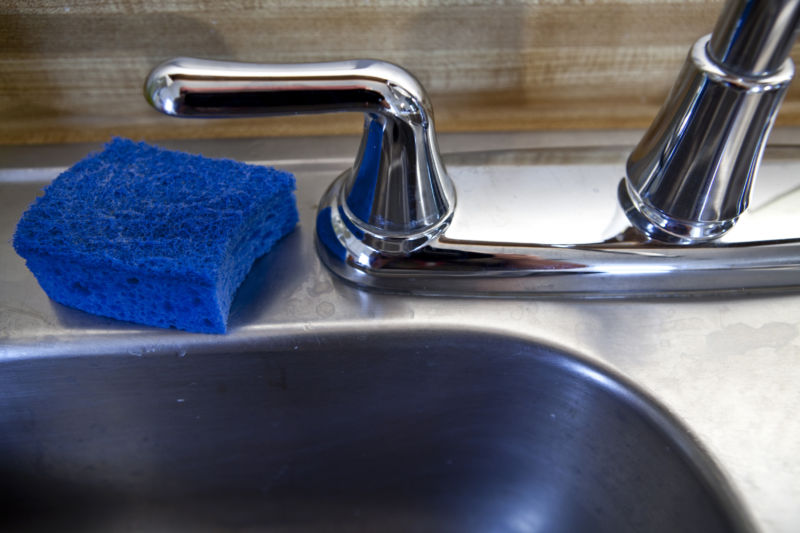Some germy places in the house include the kitchen faucet and sponges. Typically people wash their hands after handling raw meat in the kitchen and frequently use sponges or cloths to wipe germs from surfaces in the kitchen. (Photo by Zbigniew Bzdak/Chicago Tribune/MCT via Getty Images)
Scientists have long thrown shade at the unassuming kitchen sponge. The household staple skulks in sinks amid dirty dishes and soggy food scraps, sopping up and amplifying microbial forces capable of invading clean food spaces. The savvy kitchen-goer may think they have this situation locked down—a simple toss through a sanitizing dishwasher cycle or a sizzling swirl in the microwave… and done. Sudsy germsplosion averted.
Nice try, says science.
In a comprehensive study of 14 household sponges and their microbial inhabitants published in Scientific Reports, researchers confirmed that kitchen sponges are indeed domestic abominations. Moreover, any sterilizing attempts only seem to temporarily free up sponge-space for potential pathogens, which rapidly recolonize the festering scrubber.
I haven’t used a sponge in my personal kitchen for years. Blech.
Read the whole thing at ARS Technica.
Further Reading:
The New York Times: We Need to Talk Some More About Your Dirty Sponges
